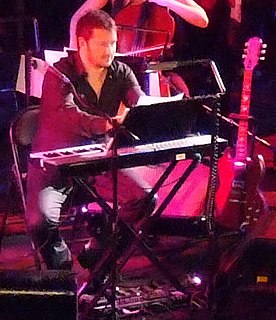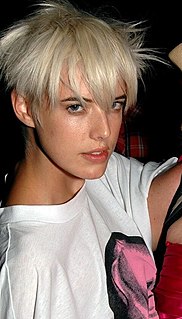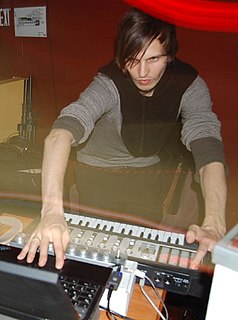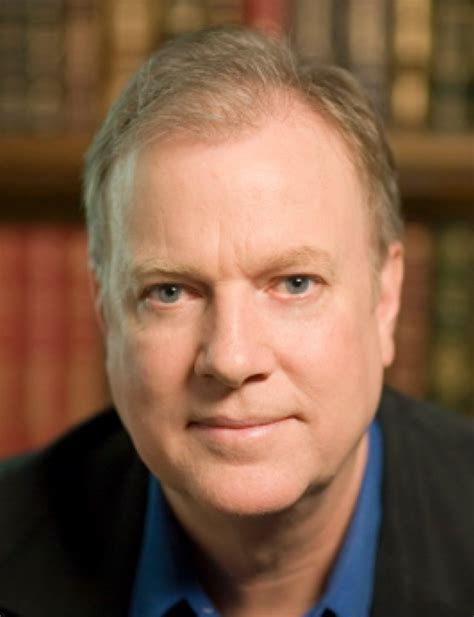A Quote by Fred Schepisi
I like when I use music in film that it isn't just gilding the lily and it isn't telling you how to feel. It's giving you something, some other information that you cannot otherwise get in the scene.
Related Quotes
I think music is just a wonderful ingredient that helps us understand a scene better. And certainly you can overuse music, and you can use the wrong music. I probably have been guilty of these things over time. But if you use music correctly as a friend of the theme, a friend of the narrative, ou can lend some terrific connective tissue to a film.
I really like to absorb the project and watch it and work on the music a lot and just get the feel for it until eventually a moment comes where I know I've got it. A lot of it is trial and error. Some days a piece of music doesn't work then other day another piece of music finally says something and works with the picture and suddenly casts a light on all the other stuff you've done - probably because my mind is getting to understand it and the piece is educating me. I always feel like the score is in there already somewhere and I just have to channel it and accent it.
Being the executive producer of a film is not that difficult. It just means that you have some power. There's not a huge amount of skill involved, I don't know how much I'm giving away here. I feel like that guy on Fox, giving away the magicians' tricks. It's not rocket science, being an executive producer of a film.
Those of us that get to a certain level, we have to start giving back to our communities, giving information it's something that you have to do. It's either realize that you're a great individual by nature and move towards that or just accept the white man telling you: 'you're never going to prosper, this world isn't meant for you to prosper, we have privilege, you don't, that's it.'
It is captivating, isn't it? England has such a great scene of electronic music, and I think that was very prominent in Pusher, and the nightlife was the beat of the film. I feel what is really great about Pusher is that it wasn't about drugs and guns and strippers. That was just all circumstantial. I felt like it was really about people and how decisions and circumstances can change relationships. Something just happens. Everything changes for a reason.
The purpose of music is to elevate the spirit and inspire. Not to help push some product down your throat. It puts you in tune with your own existence. Sometimes you really don't know how you feel, but really good music can define how you feel... someone who's telling me where he's been that I haven't and what it's like there - somebody whose life I can feel.
I'm Uncle Snoop. That's the name I've been given in the industry because I'm like an Uncle to all of the rappers whether they are older than me or younger than me and I love giving advice. If I feel like they need some information, I give it to them, I sit them down and talk to them. I try to get all of the rappers on one page of peace, love and just having soul and just being about representing this music.
I just feel like it's so amazing every few years when I'm not making a film to act and basically go back to film school and just watch other filmmakers work and try to be a part of somebody else's vision. So I feel like you do use two very different parts of your brain, and it's great to be able to jump back and forth.
I like the process of giving control away [at the recording]. When you give it up to people, it's another intelligent organism that digests your information completely differently from how a machine digests information. It's like you're on a sailboat, and every time you can find out how to better adjust [the sail] to make it more precise. And it's interesting to see that the musicians have their own ideas. To use their intuitive power with their knowledge that they incorporate into the music. This is the moment you give away control, you give it to someone else's intuition.
In the States, you have the First Amendment. People feel the freedom to speak and the right to be heard. And they kind of push the message: "It's a free country." Everybody has the right to say whatever they want to say. But in the Middle East, culture is your guide. You have to ask, is it culturally okay to say something like that? Is it culturally okay, for example, to show a woman giving birth? As Arabs watching such a scene in an American film it's okay, but when it comes to the Arabic context, we're like, "How dare you?" So it's how you present it.
Many writers struggle with exposition in their novels. Often they heap it on in large chunks of straight narrative. Back story – what happens before the novel opens – is especially troublesome. How can we give the essentials and avoid a mere information drop?
Use dialogue. First, create a tension-filled scene, usually between two characters. Get them arguing, confronting each other. Then you can have the information appear in the natural course of things.
You are doing something over here and over there someone is telling you a joke, or giving you an important piece of information about sanitation, and no matter how weird the other subject is, there is a connection, or you can make a connection. I’ve always loved history and history is collage, it is a juxtaposition of the good and the bad and the strange, and how you place those sentences together changes the whole mood of a history.





































